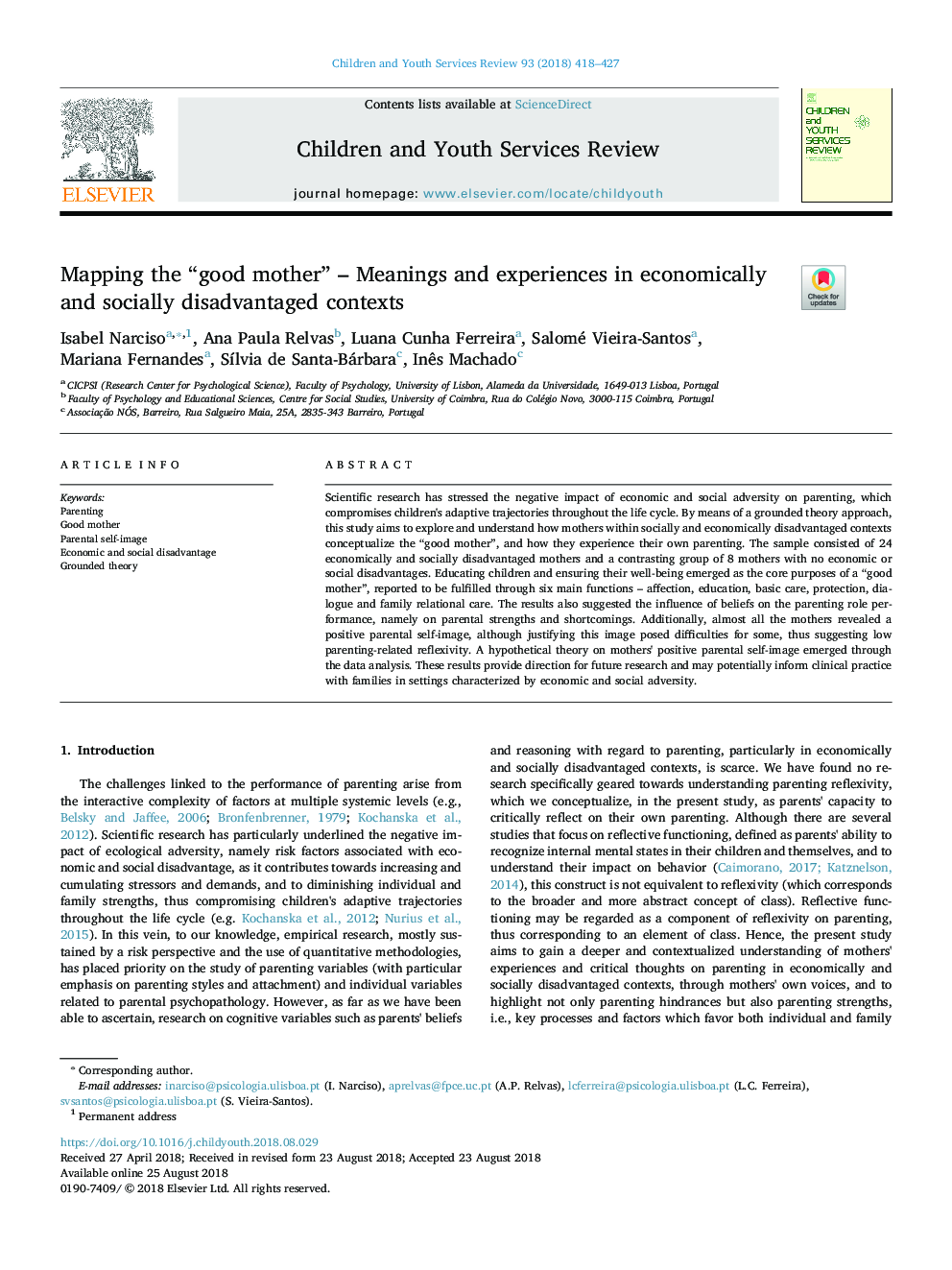| Article ID | Journal | Published Year | Pages | File Type |
|---|---|---|---|---|
| 11002104 | Children and Youth Services Review | 2018 | 10 Pages |
Abstract
Scientific research has stressed the negative impact of economic and social adversity on parenting, which compromises children's adaptive trajectories throughout the life cycle. By means of a grounded theory approach, this study aims to explore and understand how mothers within socially and economically disadvantaged contexts conceptualize the “good mother”, and how they experience their own parenting. The sample consisted of 24 economically and socially disadvantaged mothers and a contrasting group of 8 mothers with no economic or social disadvantages. Educating children and ensuring their well-being emerged as the core purposes of a “good mother”, reported to be fulfilled through six main functions - affection, education, basic care, protection, dialogue and family relational care. The results also suggested the influence of beliefs on the parenting role performance, namely on parental strengths and shortcomings. Additionally, almost all the mothers revealed a positive parental self-image, although justifying this image posed difficulties for some, thus suggesting low parenting-related reflexivity. A hypothetical theory on mothers' positive parental self-image emerged through the data analysis. These results provide direction for future research and may potentially inform clinical practice with families in settings characterized by economic and social adversity.
Keywords
Related Topics
Health Sciences
Medicine and Dentistry
Perinatology, Pediatrics and Child Health
Authors
Isabel Narciso, Ana Paula Relvas, Luana Cunha Ferreira, Salomé Vieira-Santos, Mariana Fernandes, SÃlvia de Santa-Bárbara, Inês Machado,
